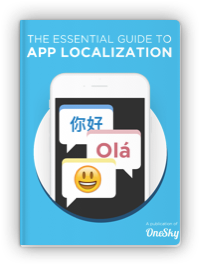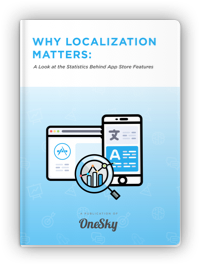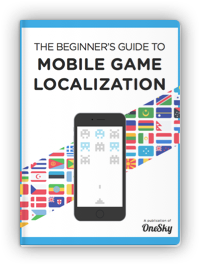Software Localization Services: Why Businesses Should Invest
What is software localization?
The world is interconnected. Software companies across the world have the opportunity to expand beyond national borders to reach global customers and increase their sales.
However, the companies that choose to expand into the global markets face a range of challenges:
- Language barriers: People across the world don’t speak the same language. There are more than 7,100 languages spoken in the world.
- Cultural differences: The tastes, sensibilities, and cultural sensitivities of people in no two countries are the same.
- Legal norms: The legal norms for software may be different from one country to another.
How can one overcome these challenges and capitalize on global expansion opportunities?
The answer is software localization!
Software localization is the process of adapting the software application to meet the language and cultural preferences of the local market. The software localization process goes beyond translating the content to the local language to modifying the user interface, formatting standards, and graphical components.
A few vital components to be modified while localizing the software are:
- Menus
- Glossaries
- Dialog boxes
- Error or status messages
- Color combination of the application
- Technical documentation
- Graphics and photos
- Icons and CTA (call-to-action) buttons
This article explores the reasons for businesses to invest in software translation services.

Why Businesses Should Invest in Software Translation Services
Software localization should be your priority because it opens up a whole lot of opportunities to scale your business to new markets, serve more people, and increase revenues.

Reach New Customers and Expand Internationally
There may be many people around the world who have never tried your software because it is not available in their native language. They have never gotten the opportunity to download your software because they don’t know it exists.
The below statistics related to spoken languages across the world uncover the worth of local markets and the importance of translating your software application into different languages:
- 75% of people in the world don’t speak English at all.
- Nearly 20% of the population that connects to the internet speaks Mandarin Chinese dialects.
- The other widely-spoken languages in the world are Hindi (8.3%), Spanish (7%), French (3.6%), Arabic (3.6%), Portuguese (3.4%), Russian (3.3%), and so on.
If your software application is available only in the English language, you will be confining your business to a tiny target market.
Software localization takes you to new target audiences who speak different languages across the world and helps you expand your business internationally.
Gain Competitive Advantage
Businesses today are operating in an intensely competitive environment. One way to differentiate your brand from your competitors is to make your product multilingual. Language is the biggest barrier for software products. If you break the language barrier by localizing your software to multiple foreign languages, you will surely gain the first-mover advantage.
Another advantage of software localization is that it helps you gain trust from the local markets and build a loyal customer base. Enterprises that enjoy customer loyalty always have an edge over their competitors. However, this is possible only if you localize your software product correctly, eliminating reliability issues and functionality bugs.
Below are the best practices of software localization that help you gain a competitive advantage:
- Ensure there are no untranslated strings.
- Deploy subject matter experts to translate abbreviations, business-specific jargon, and complex sentences in a way that local people understand easily.
- Avoid machine translation because it is not capable of understanding the complex grammar structures, cultural implications, and idiomatic expressions.
- Ensure the color combinations and images reflect the local culture.
- Eliminate cut-off texts and uneven font sizes.
It is recommended to test the translated software application in real time before releasing it to customers. For instance, OneSky offers on-device testing that helps you identify untranslated strings, grammar mistakes in translations, and issues with UI/UX. The localization testing enables you to come up with a localized software product that provides a seamless experience to users in their native language.
Increase Revenue on All Fronts
The ultimate goal of any software provider is to increase revenues. There are three ways the software localization helps you just achieve this goal:
- Reach more target customers: Since localization ensures your app is available in multiple languages, the app downloads would go up significantly. It means more people would start using your product. If you are offering the software as a service (SaaS), the localization increases your app subscriptions in multiple languages, thereby revenues.
- Increase the conversion rate: Typically, people want to test the software product before they purchase it. They want to use the trial version of the product for a few days before starting the paid subscription. If you enable potential customers to try the localized software product that enhances their experience during the trial version, there is a high possibility that they would quickly opt for the paid subscription. It means the localization allows users to fully understand and feel the benefits of the product and motivate them to make a quick purchase decision.
- User engagement: The ideal user experience ensures that the existing customers stay engaged with your software and develop a deeper brand connection with your company. This user engagement translates into customer loyalty and generates positive word of mouth for your software.
Help Users Better Understand Your Functionalities
Another benefit of software localization is that it enables users to effectively interact with the software and use its functionalities correctly. Since localization ensures everything, including menus, buttons, notifications, and commands, is translated into the native language, users will get an opportunity to exploit the full potential of your product and make it a part of their day-to-day life.
Enhance Your Services with OneSky App
Software localization helps businesses reach more target customers, enhance revenues, build a strong loyal customer base, and gain a competitive advantage. To make this happen, software providers should choose a reliable translation company with a proven track record.
OneSky is a leading software localization service provider that can translate your desktop software, mobile apps, and web apps into 50+ languages across 70 countries worldwide. With experience delivering over 1,000 translation projects, OneSky helps you localize your software application into any of your target languages, including English, Chinese, German, Russian, Japanese, French, Italian, Brazilian, Spanish, Korean, and Portuguese.
Software providers across the world trust OneSky for their localization needs for the following reasons:
- A robust translation management system: It automates the traditional software localization workflows and streamlines translation processes.
- Quality assurance through human translation: OneSky has over 1,000 high-quality professional translators who have undergone several internal grade tests and third-party panel reviews.
- Tailored project management: Working with OneSky is straightforward. Our team helps you set up the technical procedures for your software localization project and provides regular updates on its progress.
- Supports several file formats: OneSky supports over 19 file formats, including .strings, .stringsdict, .plist, .xliff, .xml, .html, .json, .resw, and .resx.
- Integrations: OneSky facilitates API integrations with a range of software development platforms for a seamless localization experience.
Want to learn more about how OneSky can help you localize your iOS and Android applications? Sign up today!


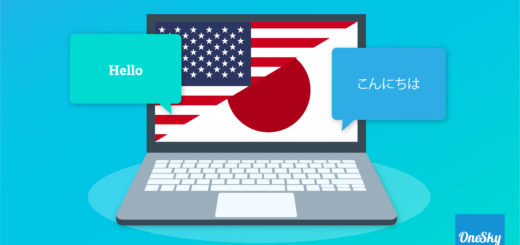
 Written by -
Written by - 
 Written by -
Written by - 
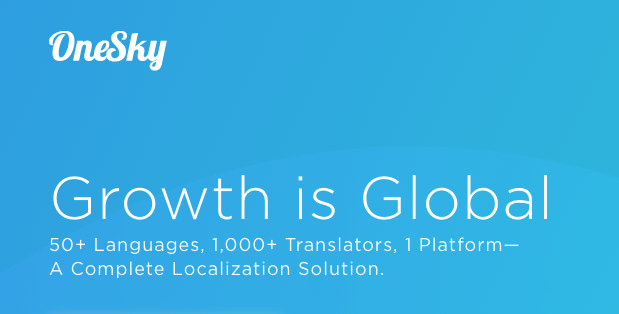

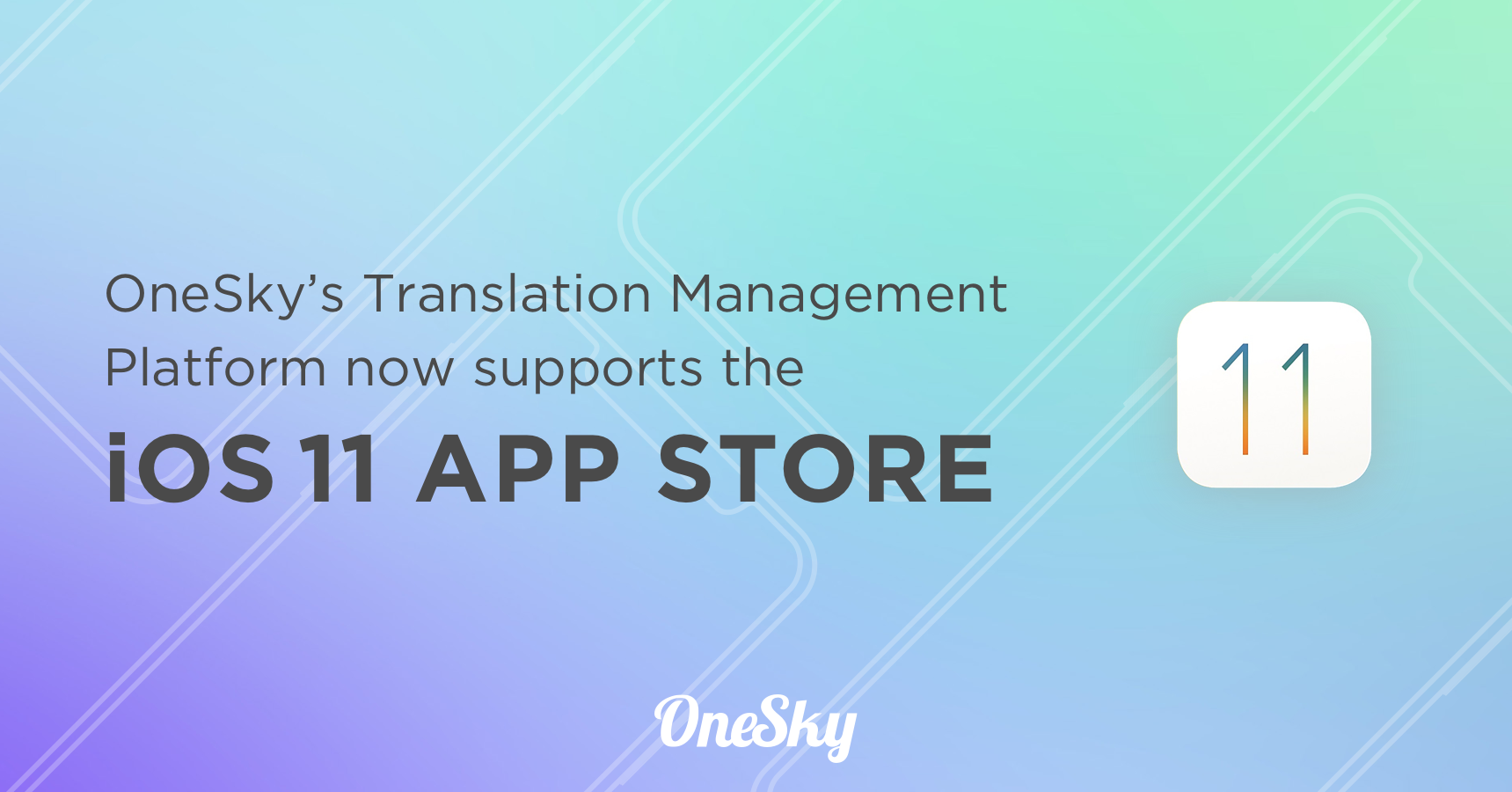
 Written by
Written by 
